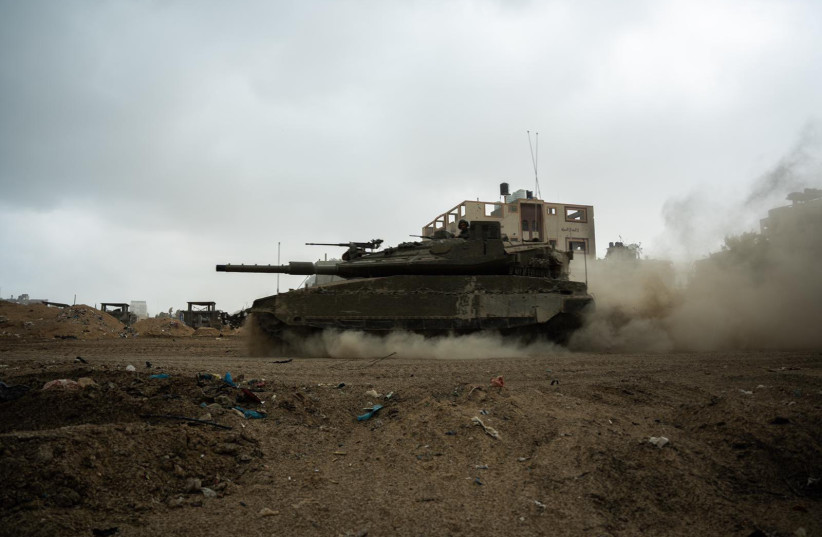A ceasefire in Gaza could provide both Israel and Hamas an opportunity to pause fighting and size up the situation. Israel has been fighting on the ground for three weeks. Israel’s soldiers have made major progress. They have degraded 10 Hamas battalions of terrorists.
Hamas cannot replace the terrorists it lost easily. It doesn’t have a pool to recruit from in northern Gaza, because most Palestinians have fled Gaza City to the south.
Hamas is also surrounded in Gaza City. The IDF 36th division is pressing in from south of the city, moving into the Zaytun neighborhood.
IDF troops from the north are also pushing into Jabalya and moving in from the coast. Hamas has much less room to maneuver. A pause in fighting will give Hamas units a chance to regroup.
Hamas has short internal lines now, because it is surrounded. It can reposition its forces, move what weapons stocks it has to the front and prepare ambushes and also potentially try to exploit the calm to enter tunnels and try to infiltrate the IDF lines.
Hamas will also have time in the south to reposition forces. While it can’t bring forces north, it could move them toward staging areas such as Bureij or Nuseirat, near the frontline with the IDF controlling an area across Gaza north of these areas.
Hamas could also begin to restock its rocket arsenal and set up new rocket barrages. Over the last week its ability to fire rockets has been reduced. Hamas could also use the time to set up explosives along roads where the IDF might advance.

These types of IEDs (improvised explosive devices) might adopt Iranian practice, such as in making EFPs (explosively formed penetrators) a special type of shaped charge designed to penetrate armor.
Overall, Hamas appears to be running low on missiles. In addition, the IDF has overrun many rocket-firing positions.
Hamas also suffered losses in its anti-tank forces and air defense array. It has lost numerous battalion commanders. It can’t easily replace them, but it could try to recruit a few thousand more volunteers and use an extended ceasefire to train some recruits.
Hamas could use allied terror groups against Israel
Hamas has no shortage of small arms, such as AK-47s. Hamas could also use this time to move hostages around and work with other terrorist groups, such as Palestinian Islamic Jihad, as well as Gaza civilians who participated in the massacre and kidnappings, to try to exploit the ceasefire. It goes without saying that Hamas would continue exploiting the opportunity for propaganda, putting out videos.
The Iranians may also use the ceasefire to increase attacks from Iran-backed Hezbollah and the Houthis, or from Iran-backed militias in Syria and Iraq. In addition, the focus will shift to the humanitarian situation.
Hamas uses human shields, so it could try to infiltrate areas that are supposed to be safe zones. It might even try to exploit the field hospitals that are now being supported by various Arab states. Hamas will want to use this time to do outreach to Iran, Qatar, Turkey, Russia, and China.
At the same time, the IDF can utilize the break to rotate troops around, dig in, and get to know the areas it has taken from Hamas. This can improve situational awareness. An army can’t maneuver all the time. The IDF can repair vehicles, improve defense positions and shelters, and increase the efficiency of logistics.
In addition, troops will be able to rest while Israel prepares its own next steps. Hamas doesn’t have the initiative.
The IDF now chooses when and where to fight and how Israel’s technological superiority will be employed during the ceasefire to prepare for the next phase.
